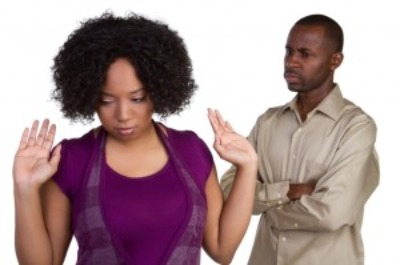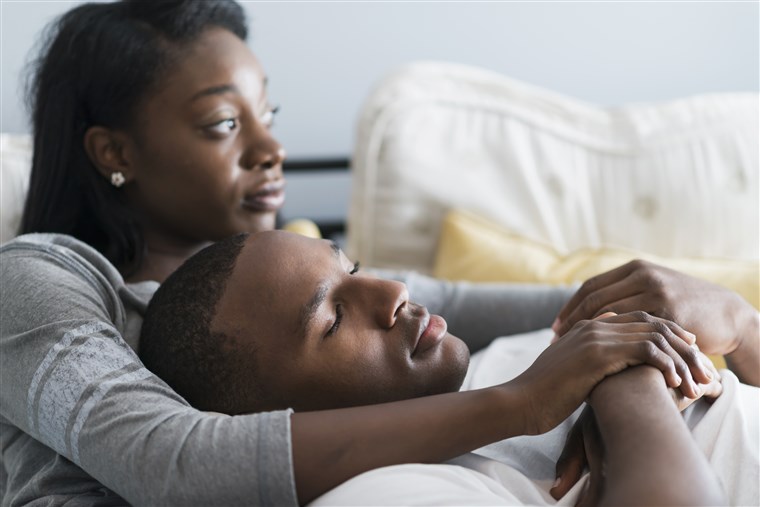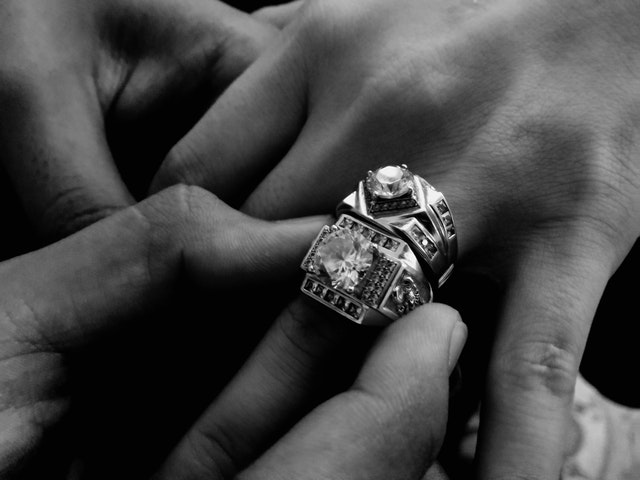Looking at How to Apologize When You Are Not Wrong
Who says apologizing makes you weaker in your relationship?
Whether you admit it or not, apologizing can never be a sign of weakness in a relationship, because you can only apologize if you’ve really got the guts and courage to confront him or her. However, there are some people, who you will probably know of, that are just in the habit of apologizing because they feel that their relationship is at stake. I believe it is not wrong to keep apologizing just for the sake of saving your relationship.
When we speak of who is to say “sorry” in a relationship, it is very important to always remind yourself that nobody on this earth is perfect. We will have one flaw or the other and it is absolutely OK to make mistakes and offend our partners at one point in time or the other (it should eventually result to a proof that you both are compatible)
A supporting quote from a certain love and relationship expert confirms what I am saying in essence: “Apologizing does not always mean that you have done wrong and the other person is right. It just means that you value your relationship more than your own ego”.
Actually, it is a very tricky thing to accomplish when you apologize, knowing fully well that you have done nothing wrong at all.
Sometimes, it will be very obvious that your partner or spouse is the one at fault. But with the mentality of “This is not all about me, this is not all about him, it’s about us. ” Then you will understand that there are some situations that you will need to be the one saying “Its okay, I’m sorry about everything”. Such understanding must have gotten you to be reading this article.
Well, I will confirm to you based on personal experience in my previous relationship that the manner which you apologize, guilty or not, just your decision to apologize will definitely determine whether you will be forgiven or not. An apology without forgiveness or reunion is nothing. It is better not to have even apologized in the beginning. If the apology does not sound sincere, chances are they will not be accepted at all.
The subsequent consequences of your relationship, courtship or marriage could be so tough. But trust me, your inability to apologize to your spouse when needed can also aid even a tougher consequence.
So your partner keeps falsely accusing you of something you actually did not do or know nothing about? And you just feel like this is a mess, like you are under a very disturbed attack?.
Those words of apologies fail to escape from your lips? And you feel that this is all about you alone. No sweetheart, it has got something to do with the interest of your relationship.
There may be a need for you to be the storm calmer. You may need to be the one to apologize. This could be the best and simple way to get going in your relationship, to prevent it from hitting a snag.
Now, I want you to understand that there is a large story to play. Do not put yourself under unwarranted pressure, guilt or blame. You are only doing it because there is every need to. It is not all about buying the best red flowers, shedding tears or simply saying “sorry” in a best-structured way. It has to be sincere.
There are some ways you can apologize even when you have done nothing wrong.
Why apologize, anyway?
There are numerous reasons why you should be the one making a sincere apology when you have done nothing wrong.
When you apologize, you help the other person acknowledge that he or she has engaged in an unacceptable behaviour. It paves the way for your partner’s willingness to admit his or her mistakes and gives an opportunity to encourage sound communication between both of you.
In a way, your apology can help in the rebuilding of trust and reestablishing of that connection you have with the other person.
Far worse, If the situation of “who did wrong? ” had drained the rhapsodical conversations between you both, your apology automatically opens a dialogue between yourself and the other person.
What is more, when you help the other person admit that the situation was nobody’s fault by apologizing, you are restoring dignity to yourself, the one who is hurt.
Your apology when you have done nothing wrong shows that you are taking responsibility. It makes you feel a sense of relief and unveils that matured side of you when it comes to handling betrayal.
Of course, I can agree with you if you say that your partner must apologize for his or her wrongdoings, it’s highly expected. But look, If your apology is the only thing that can possibly hearten your now-deterring relationship, then DO IT. So long as you value such a relationship. You know, not everyone has the same stand like you.
Undeniably, I understand that apologizing when you are not wrong may seem irksome and difficult. But have you ever wondered why apologies are difficult?. Some people feel that they will be full of shame and embarrassment over the actions that can not bring themselves to the face of their partner. But the truth is, apologies requires courage, whether guilty or not guilty. It may seem to put you in a vulnerable position when you admit that you are the one who has done wrong.
In most cases, it opens you up to more false blame and attack. This is a reason why some people struggle to show this courage to apologize even when they are innocent. But there are ways; psychologically proven ways that you can apologize even when you are not wrong. It is just to make peace and ensure things are smooth as before.
Let us look at each of these ways below:
1. Play the bigger role
Putting things off for a very long time only gives space for anger and grudge to grow. Sometimes, your partner was wrong and you were a little wrong too. It is also important for you to play a bigger role by being the bigger person in this issue, accept the negative aspect of the situation in order to proceed, then apologize. When you both discuss, later on, you can eventually pour out your mind to your partner how he or she had made you feel.
Take the stance to bite the bullet and apologize. The likelihood is that your partner will do the same thing for you.
2. It is wise to listen well
I do not care who is at fault, but you’ve got to really excersise the listening skill when you want to apologize for what you have not done. Why? In a situation where you need to apologize, the other person will surely have some different feelings about the same situation on ground, in contrast to yours.
Hearing is different from listening. I have heard people say ” I’ve heard all that he has to say, there is no point apologizing”. I’ve also heard people say “I’ve listened to him,I think we need to settle our differences”. Yeah, when you listen and not just hear, you tune in (using your mental focus), putting yourself in your partner’s shoe and acknowledge that you understood what they said.
It is time for you to listen to what they have to say first like it is your job. No interruption, no disagreement. Listen first, and then apologizing becomes easier.
3. It is not enough to just say it
So sometimes ago, you and your spouse agreed to go to the movies at 9pm. And after waiting for two hours, he called that it should be postponed. Now you feel disappointed as it was a big deal to you, his apologies had no effect, you got a little bit mad and decided to take rough reactions. After several potholes, you just decided to apologize for something he had started in the beginning.
After a couple of weeks, same thing happened and you took same rough action and kept on willingly apologizing for what you did not actually start.
What is the essence of an apology when your actions do not speak with it?. Your action in this situation will speak louder than words. If you do not follow through, you have crossed the line into deterring your partner’s trust.
Let your action speak too. It is part of you playing the bigger role.
4. Apologize with a clear head
Take a very good time to think things over. You need to understand what the other person has done, why it was done, and what is has caused on your relationship. Why does it upset you so much that you find it hard to apologize? , except your partner has done something knee-jerk which demands immediate apology.
If you do not go into your apology with a clear head, you could just start with a fit of residual anger or resentment and make it even worse. Think things over, whether it is just a little wrong or a major relationship crime that takes time to be sorted out.
5. Apologize in the right way
If you’re concerned that your words won’t come out right when you apologize, write down what you want to say, and then role-play the conversation with a trusted friend or colleague. However, don’t practice so much that your apology sounds rehearsed.
Once it’s time to do the deed, you have to do things right, which means you have to get into full-on apology mode. No phones. No text apologies. No TV in the background. Just you, your partner, and some real eye contact. And then you just have to apologize. Say, “I’m sorry I…” and explain what you’re apologizing. This will kick start the discussion and open the door for you both to share your feelings.
6. Don’t give excuses
I have noticed that when apologizing, a lot of people are tempted to explain their actions. This may be useful, but explanations can often be seen as excuses, and these can weaken your apology. Don’t shift part of the blame onto someone or something else in an attempt to reduce or elude responsibility.
Here is an example of using excuses in an apology:
I’m sorry that I snapped at you when you barged into my office yesterday. I was so busy and my boss demanded my project report an hour earlier than planned.
In this particular case, you excuse your behavior because of stress, and you imply that the other person was at fault because he bothered you on a busy day and barged into your office. This makes you look weak.
Apology in a relationship is crucial. Even when you have not done anything wrong, see possible ways to apologize. It doesn’t make you weaker than the other. It makes your relationship thrive. And over time, there won’t be any need for you to always apologize.










No Comments